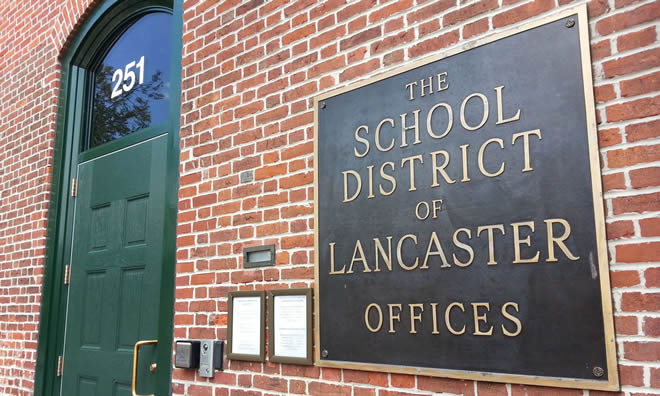Lancaster Online
Wednesday, July 20, 2016
By Kara Newhouse

Some of the neediest students are being turned away at the doors of Lancaster city schools, a group claims in their lawsuit against the school district.
Six refugees filed a class action lawsuit in U.S. District Court Tuesday, saying that the School District of Lancaster has denied them the "meaningful and equal education" they are due under federal and state laws.
The students and their parents are represented by the American Civil Liberties Union of Pennsylvania, the Education Law Center and Pepper Hamilton LLP, all of Philadelphia.
Their complaint says that the school district regularly refuses to admit older immigrant and refugee students, or assigns them to an "inferior" alternative school with insufficient support for overcoming language barriers.
A school district spokeswoman said that the complaint is "without merit."
The refugee students are asking the court to order the district to admit them and all other similar students to McCaskey High School for the school year that begins Aug. 30.
From refugee to 'prisoner'
Khadidja Issa, 18, fled Sudan and came to Lancaster in September 2015.
That's the same time School District of Lancaster and several community groups were putting finishing touches on a new refugee center at Reynolds Middle School.
After her arrival, Issa tried to enroll in high school. The district initially refused to admit her, according to the lawsuit.
Pennsylvania law guarantees a free public education to all children ages 6 to 21.
With some pushing from a resettlement caseworker, the district allowed Issa to attend Phoenix Academy, an accelerated credit program for students at risk of dropping out, the complaint says.
Students who are ages 17 to 21 and don't have enough credits to graduate on time are sent to Phoenix, according to district spokeswoman Kelly Burkholder.
"Our primary goal is to ensure students graduate by their 21st birthday," she said in an email Tuesday.
The district pays about $4 million per year to Camelot Education, an Austin, Texas-based company, to run to the program.
Issa does not feel safe there, according to the complaint.
The daily security pat-downs all students go through make her "feel like a prisoner," it says.
Other students in the lawsuit report similar experiences with denied enrollment attempts and a poor educational environment at Phoenix.
One student dropped out of Phoenix in April after district officials failed to deter bullying that included having his hair pulled and racial epithets yelled at him, the complaint says.
The student, who is given a pseudonym in the complaint because he is a minor, escaped violence in Somalia and lived in a refugee camp in Egypt for five years before coming to Lancaster last fall.
"We have children who have really been exposed to significant trauma, and to place them in this kind of restrictive setting is re-traumatizing to these children," said Maura McInerney, an attorney at the Education Law Center, by phone Tuesday.
English support
Phoenix Academy also provides an "inferior" education to McCaskey, the district's regular high school, the complaint says.
Phoenix received 30 points out of 100 on the state's School Performance Profile last year. McCaskey received 60 points out of 100.
None of the students involved in the suit speak English. Their native languages include Swahili, Somali, Fur (an indigenous language of Darfur) and Hakha Chin (a language spoken in southern Asia).
They want to enroll at McCaskey, and particularly its transitional program designed for English Language Learners.
Burkholder said that all of the district's secondary schools provide the same types of English language instruction.
But the complaint says that the instruction at Phoenix is shorter and not responsive to individual students. It also says that Phoenix does not have any certified English as a Second Language teachers on staff.
Burkholder said there are three.
According to McInerney, the district is not upholding its legal obligations to support English language learners.
The result?
"It's an educational dead end for these students," she said.